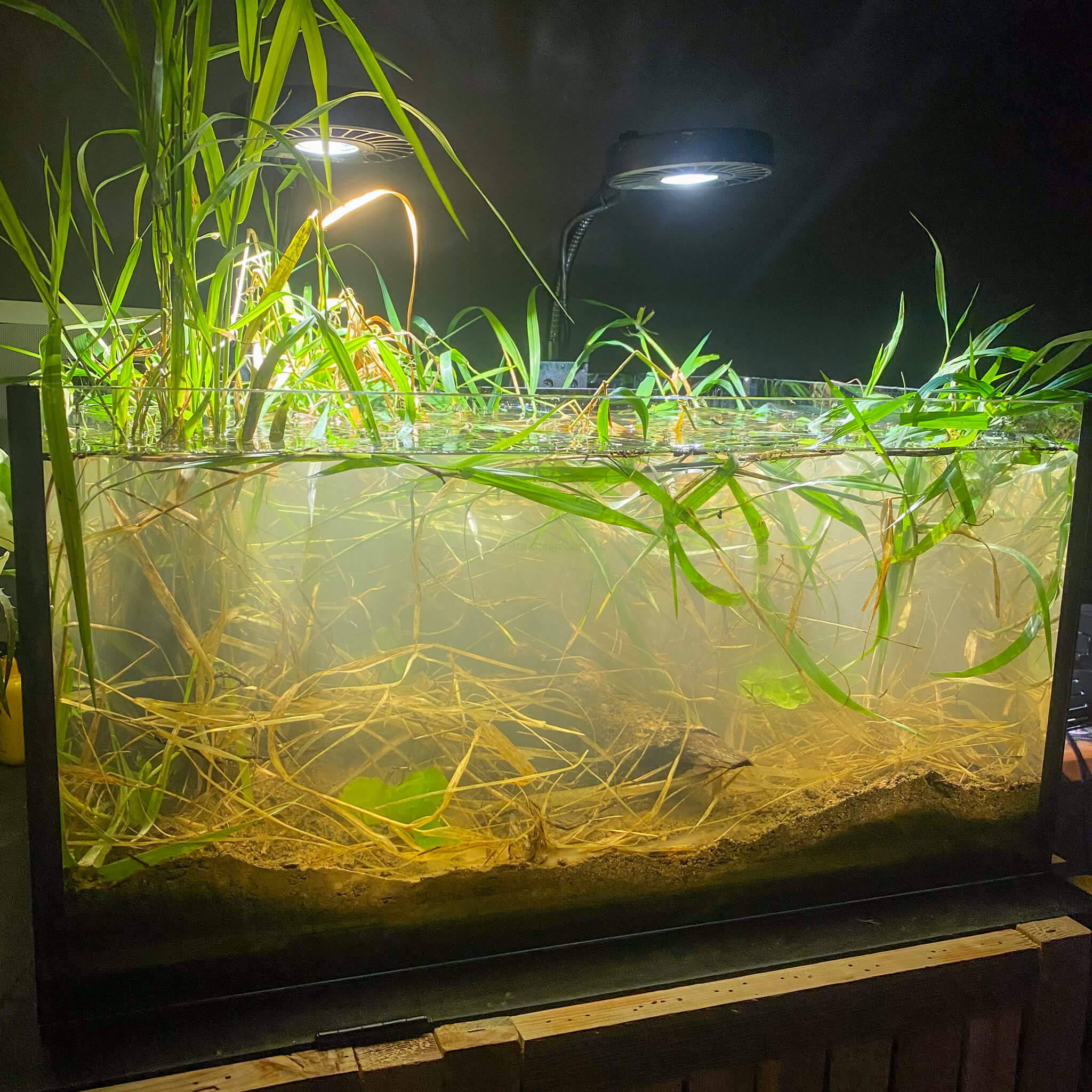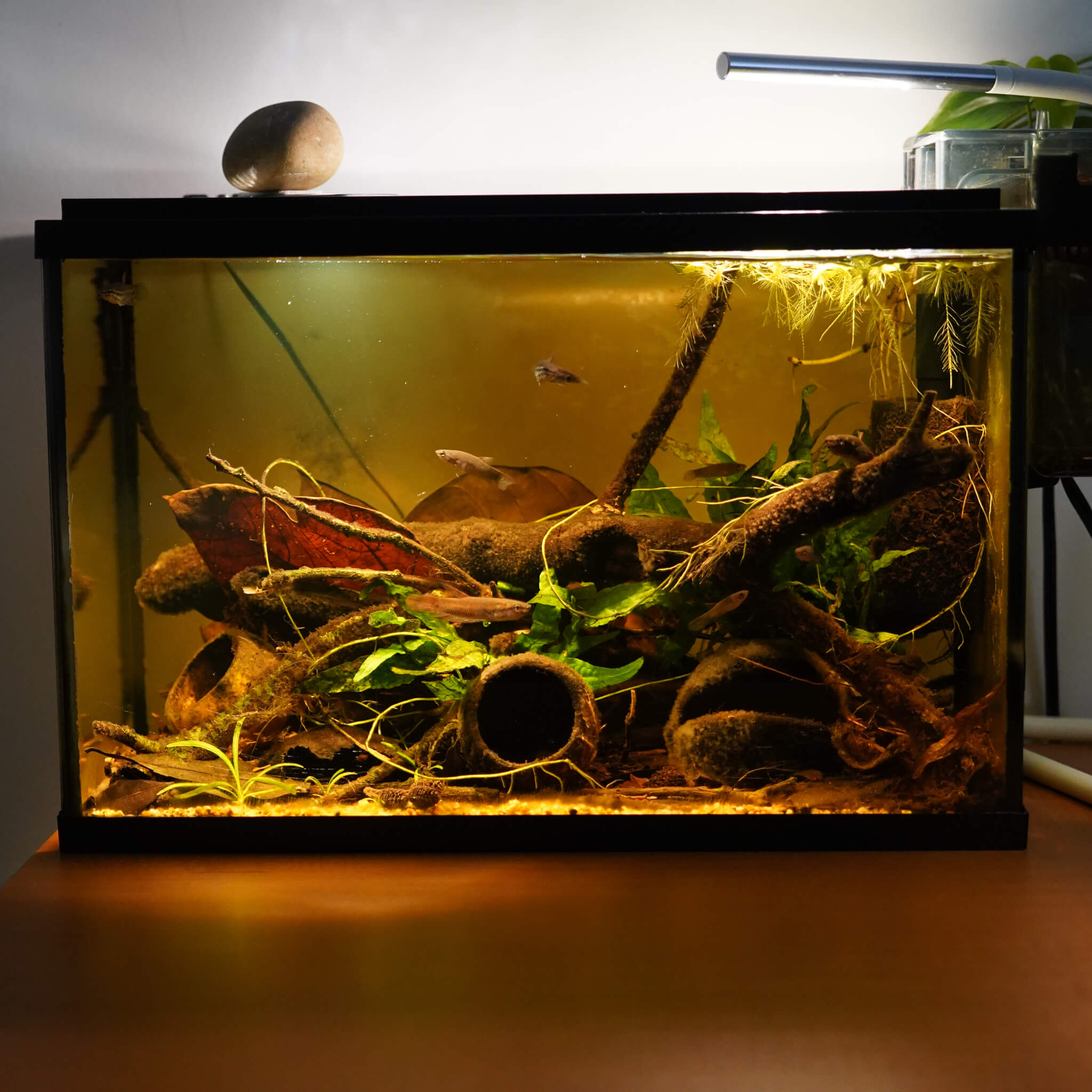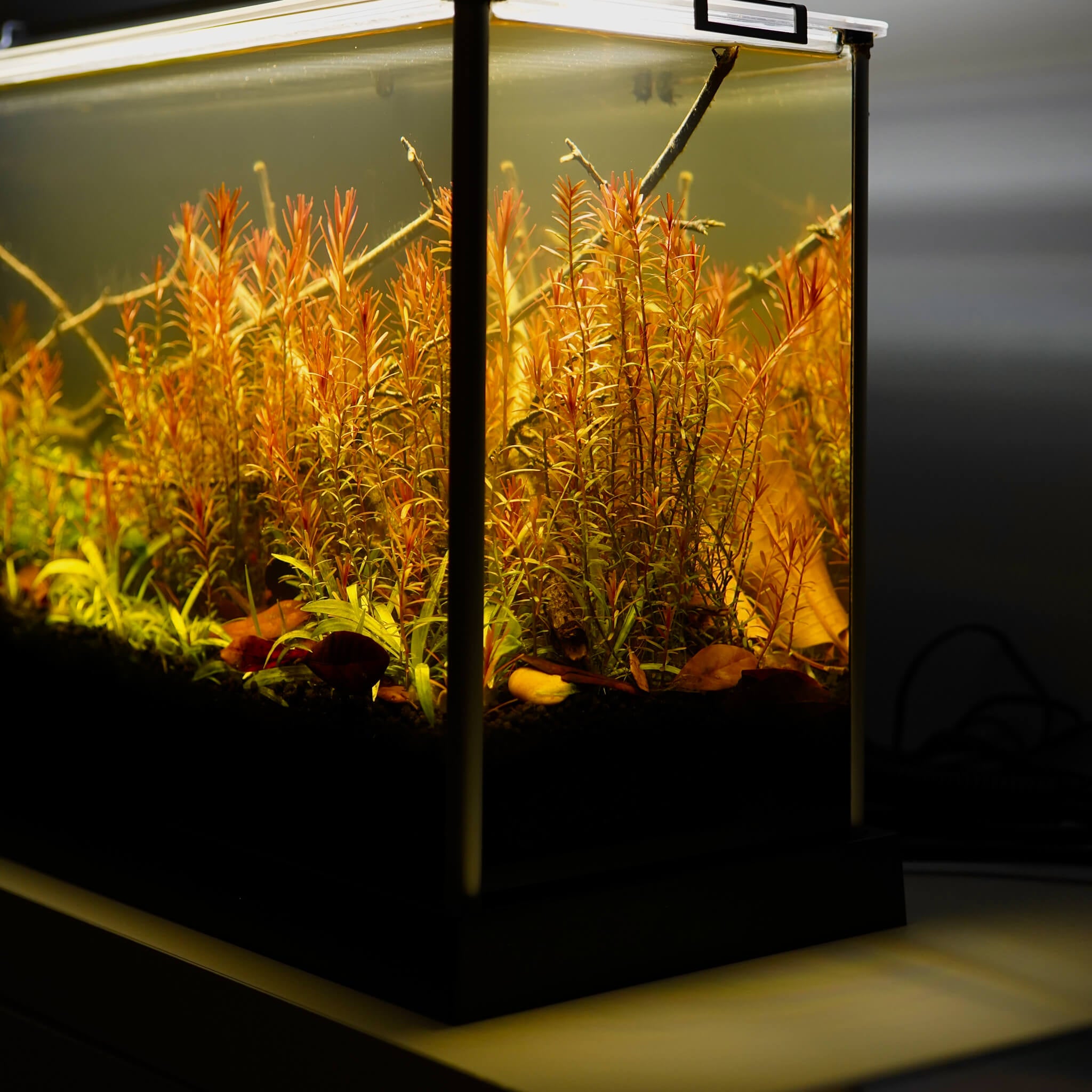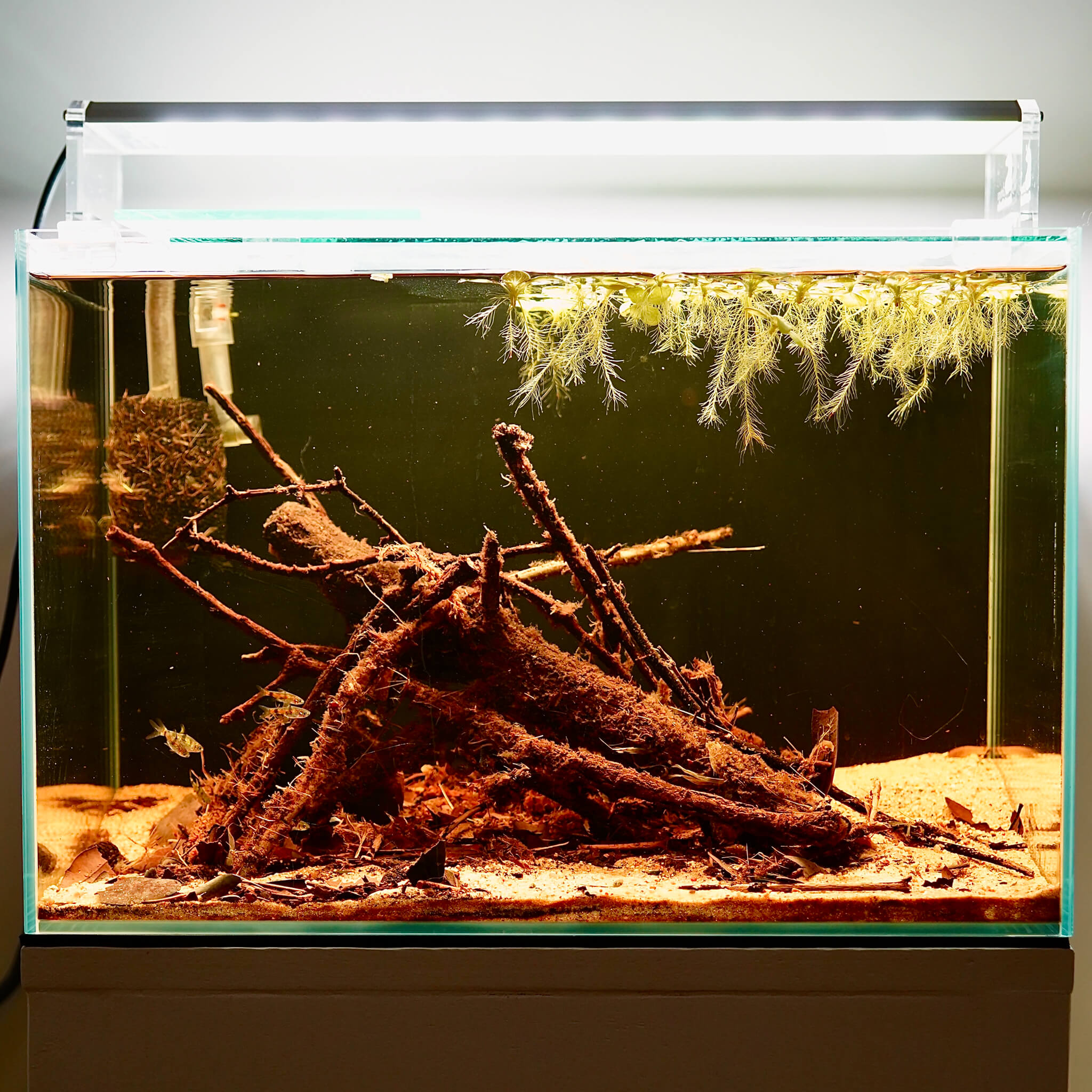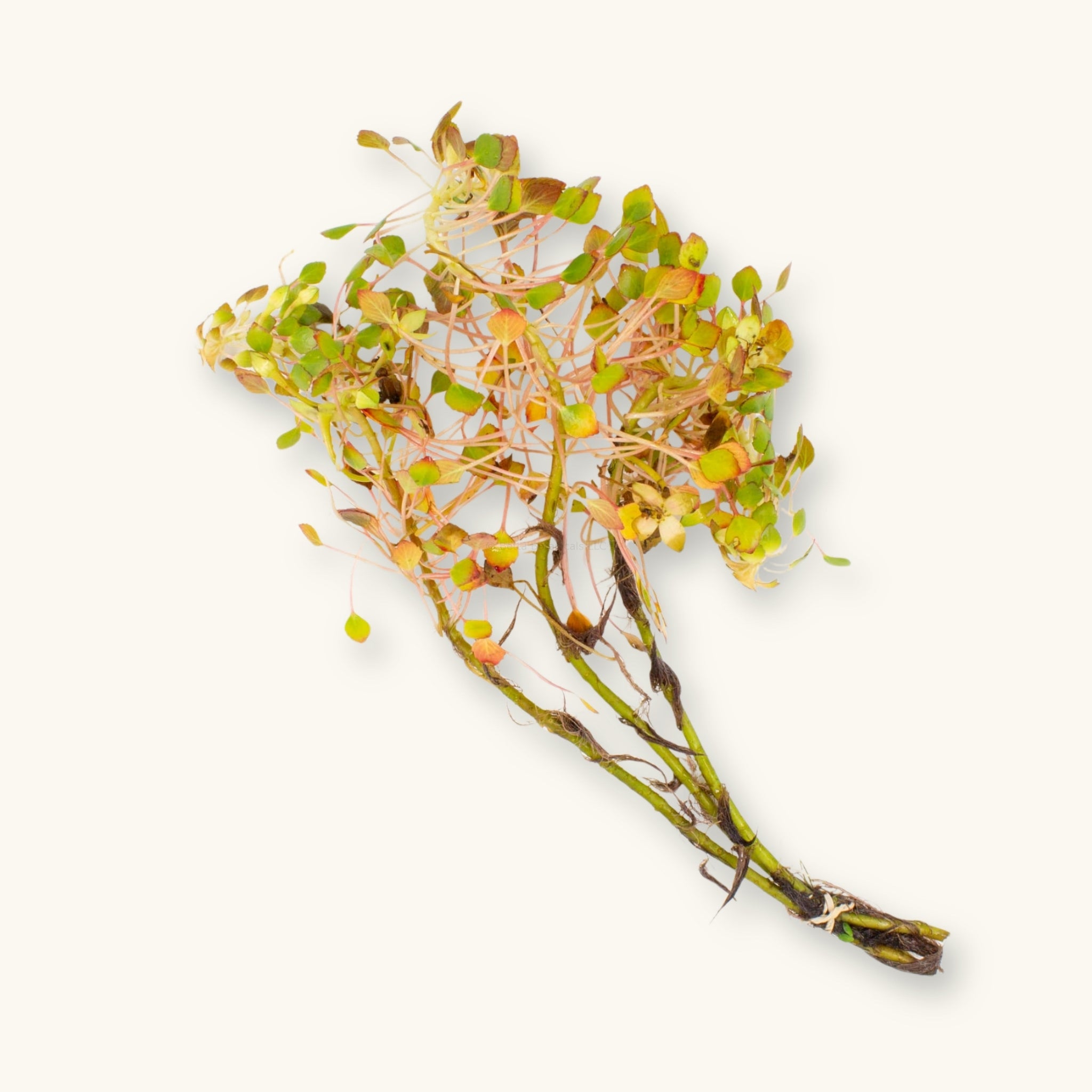
Mosaic Plant | Ludwigia sedioides
Mosaic Plant
Scientific Name: Ludwigia sedioides
Common Name: Mosaic Plant
Mosaic Plants are a very common pond plant that thrives best in full sun and very low water movement. The plant grows intricate rosettes at the water surface in a mosaic pattern, which gives it its name. Please note that we can only ship bare-root plants to California. This plant is native to tropical Brazil and Venezuela, in slow pockets of water that experience full sun. The leaves are a beautiful shade of green, transitioning to burnt orange under the right conditions. We do not recommend growing this plant in the botanical method aquarium unless you provide a full-spectrum aquarium light and a nutrient-rich substrate.
Caring for Mosaic Plant in Backyard Ponds
Sold As: Potted or bare root
Care Level: Easy
Lighting Requirement: Full Sun - Very Bright Light
CO2: Not Needed
Growth Rate: Medium
Native Habitat: South America
Tank Placement: Ponds
This plant needs to have the roots submerged, with the rest of the plant floating along the surface. It's best for Ponds, Paludariums, and/or other similar setups.
Californian customers, please only order the bunched variant. We cannot send plants with dirt to your state.
All Plants may contain snails or snail eggs. We keep them in all of our tanks for the benefits they provide. Our blackwater aquarium plants are provided by H2OPlants in adherence to their Shipping and DOA Policies. Your curated selection will arrive in their packaging separate from your botanical & merch orders.
contrast the tint with greenery
While the aesthetic appeal of tinted waters can be quite attractive to us, the recreation of nature—which includes both submerged and emersed plants—is the end goal. Flora helps to improve water conditions, feeding patterns, spawning displays, and territory building.
Aquatic Plant FAQs
DOA Policy
Please ensure that you add a heat pack or cold pack to your orders if temperatures in your area are above 90°F or below 40°F. Click for more info on our DOA Policy.
Are these plants duckweed and snail free?
All Plants may contain snails or snail eggs, small macroinvertebrates, and duckweed. We keep them in all of our tanks for the benefits they provide. We have experienced the presence of small snails, ostracods, daphnia, and beneficial detritus worms.
Are your plants only for tinted water conditions?
Nope! All of our plants will grow perfectly in untinted aquariums that have CO2 and aquasoils, or low-tech planted aquariums. Our selection, though, is optimized for emersed plant growth and low- to medium-tinted water environments.
What is your aquatic plant shipping schedule?
We’re a small company and ship Tuesdays & Thursdays only. Orders placed Wednesday–Sunday → Ship Tuesday. Orders placed Monday–Tuesday → Ship Thursday
Are your plants just for bettas?
Nope. Our aquatic plants are safe for almost all aquariums, terrariums, vivariums, and paludariums. Many of our plants can be grown emersed in filter compartments, vivariums, or incorporated into wabikua.
What are Tannins?
Tannins are natural compounds released by leaves, seed pods, and bark as they decompose in water. They soften water, gently lower pH, and create the characteristic tea-stained tint found in blackwater habitats. But their role goes far beyond color—tannins fuel beneficial bacteria, fungi, and biofilms, which form the foundation of a healthy ecosystem. They also offer mild antifungal benefits and help reduce stress in fish by replicating the natural conditions they’ve evolved in. At their core, tannins are plant-derived antioxidants that connect your aquarium to the same processes at work in wild flooded forests and streams.




